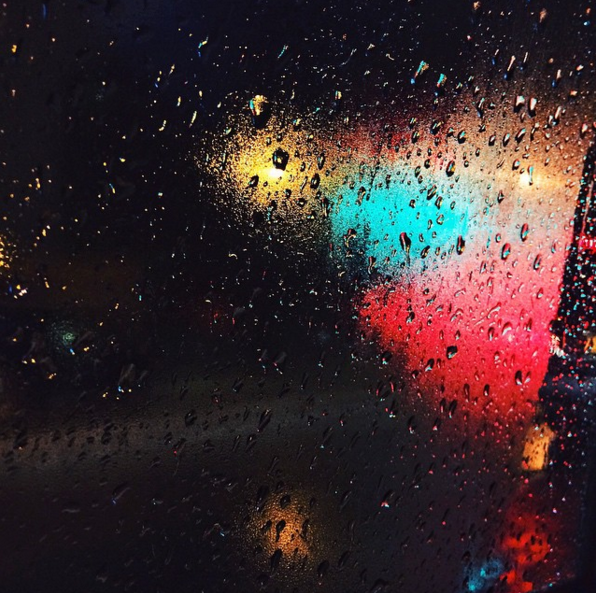Where

Silent crying comes in handy all the time: In bathroom stalls all through school; on pillows in the dark next to significant others when you fail to successfully disagree about something; funerals; cabs; standing in line at coffee shops; riding public transit. It’s never a perfect cover. As best I can tell by now the only way to appear as if you haven’t cried even after crying a lot is by wearing a shit-ton of makeup. Even when Kim Kardashian, or really any Kardashian, is bawling, there’s not a square centimeter of un-lacquered skin to betray her by turning red. Their whole faces are waterproof, and they daub away tears with a neatly folded tissue held taut against the undereye area.
Crying is literally the only thing we are born knowing how to do. We can’t eat, we can’t walk, we can’t talk, we can’t even see, but we can cry.
I taught myself this silent crying in my dad’s bathroom (it was where he kept his shaving stuff) when I was youngish, looking in the mirror, feeling ugly, sobbing away, chin crinkled by my contorted mouth. So I stopped, and I held the sobs in. It hurt my head, and hurt in the back of my throat, but it looked better, and it felt… not better, but less pathetic.
In her book Bossypants, Tina Fey described the “tri-annual cry,” where you hold it all together and compartmentalize and deny your feelings except for three instances a year, when you sob torrentially and nonspecifically, preferably alone and to no one. Usually my tri-annual cries were triggered by something relatively insignificant, and I rarely cried in the moment if anything was really wrong. My mom would try to wheedle feelings out of me only to wheel around and criticize. I preferred my dad’s approach, which was to engage only if it was possible to immediately deflect with humor. He still cared about us, in a dad way. He did all the cooking and grocery shopping in our house before my parents got divorced. When we would visit on weekends, he’d make me tuna melts and tomato soup. He’d make pot roast often, but I hated the taste and idea of the beer he used in it. He drank often, excessively.
I was working as a cashier at Best Buy two days before Christmas ten years ago when my older brother called on my cell phone; I ignored it. Then he called to the store, and his call was forwarded to the phone at my register. He told me to go somewhere quiet, where I would be alone, so he could call me again, privately.
A few minutes later I was losing my mind sobbing in one of the store’s bathroom stalls, banging the walls, almost screaming but finding nothing to meet the irredeemability of what had happened. Someone else came in — it was a public bathroom, more or less — and was probably overwhelmed by my breakdown. Are you ok? they asked.
Yes, I said, holding back. I’m fine.
Do you want me to get anyone? they asked.
No, I said through sobs, it’s alright.
My dad died before I could understand why, when I’d seen him in the parking lot outside my mom’s apartment just a couple of months previous, he fairly ran to hug me, like I’d been reported missing in action and presumed dead. We didn’t talk much during that semester, my first in college, though he called frequently. In a matter-of-fact way, I didn’t understand the calling. Before college I saw him frequently, but we never much talked, made a point of talking. It was the last time I’d seen him before we were supposed to get together for Christmas. Until a couple years ago, no family member could light up my phone without me being terrified, for a split second, that someone else was dead.
The worst part about someone dying is that they’re gone, but one of the also-bad parts is that you feel around for things to say and do and, maybe you’re just drained, but all you can grab onto is cliches. He was young, but only in the actuarial sense. We didn’t expect it. It came out of nowhere, sure. I just saw him, just talked to him, and he was fine.
And it’s in what you do, too: Like a Chicken Soup for the Soul avatar, I started shambling toward engaging with the emotional inner lives of people. I’m excited to deliver news to the world of something I learned. It’s that life isn’t a binary choice between holding everyone at a distance and becoming undone every time someone tells you their feelings, or you tell them theirs.
Who cares if cliches are sometimes true, honestly
You thought you were so clever
And yet you did the stupidest thing of all
You wasted time lording your superiority
Over facts of the human condition
You
Idiot.
There’s a cadence to the type of mistakes I make. My driving gets gradually sloppier until I have some kind of near-miss or I back into a telephone pole I completely didn’t see; I toss my phone casually on surfaces until one day it bounces off, hits the ground, and the screen shatters, and then I treat the new one like a newborn baby. Current me can never understand how past me traded so cavalierly on my time, finances, and psyche. Then current me slowly morphs into past me again, generally unaware of the consequences of actions and inactions. Sometimes pieces of learned lessons stick with me, but the broader arcs repeat. What you put your attention on thrives, and all that. Except. Now I equate feeling any peace with the fact and manner of my dad dying with an ominous loss of perspective. But if I am regressing, if I haven’t learned, there will always be more chances.
Photo by Casey Johnston
Save Yourself is the Awl’s farewell to 2015.
